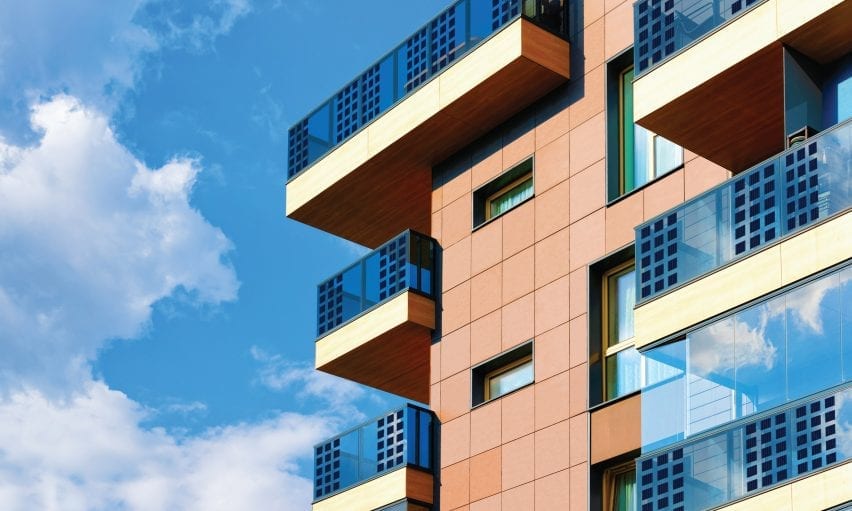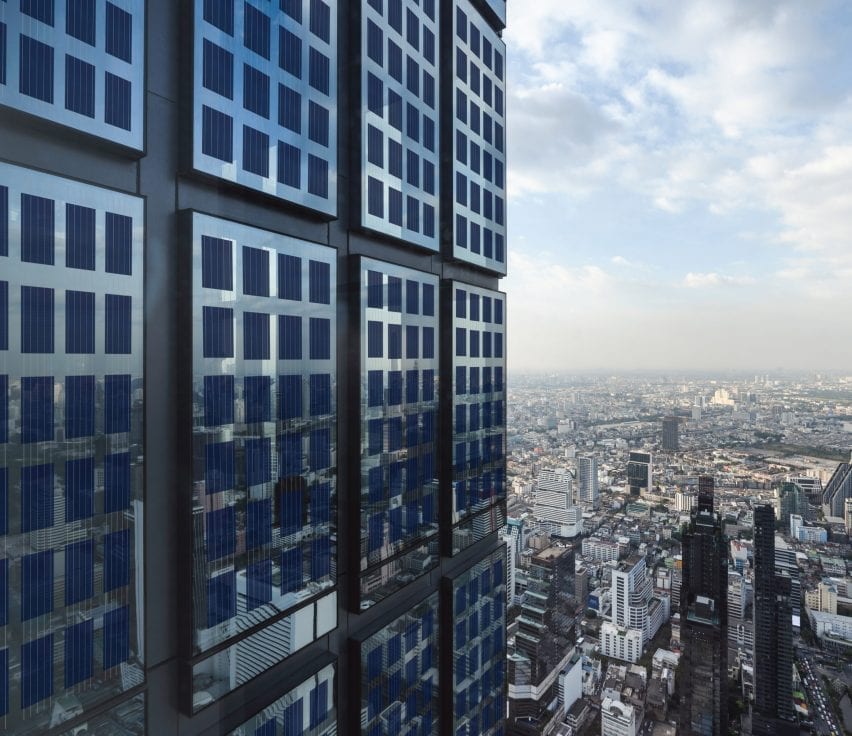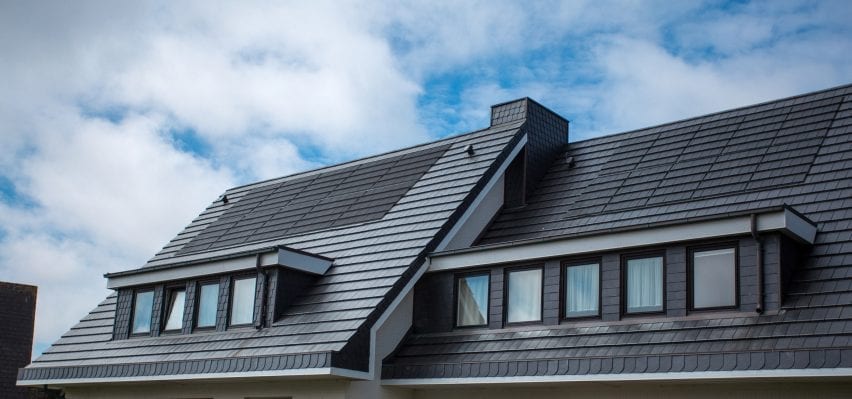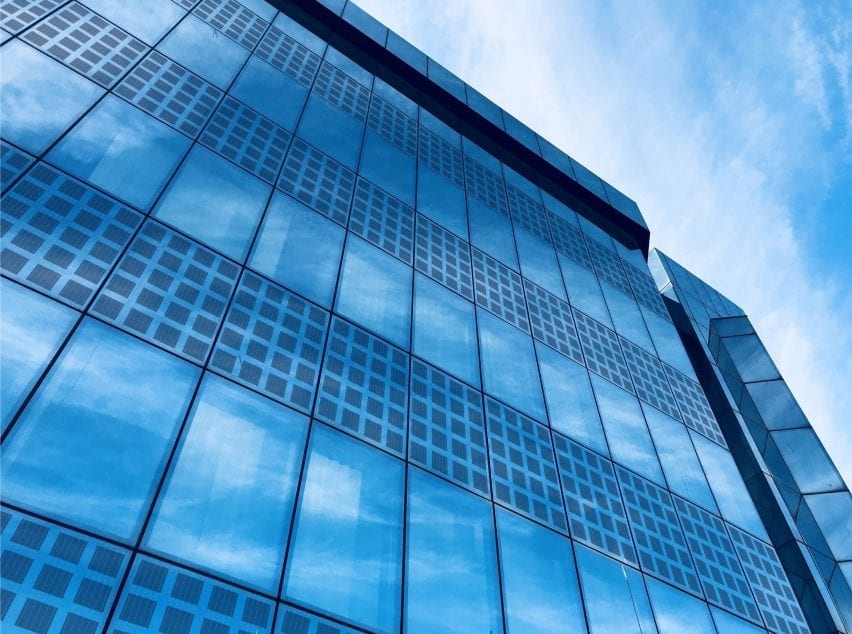
Mitrex's solar products allow buildings to produce energy "without compromising beauty"
Dezeen promotion: solar product and technology manufacturer Mitrex has unveiled a range of solar-integrated products for high-rise and residential buildings that "transform a building's shell into a self-sufficient power system," according to the brand.
Mitrex's solar product range is equipped with the brand's building-integrated photovoltaic technology (BIPV) made up of photovoltaic cells and is part of their commitment to a net-zero carbon future.
The range includes solar windows, cladding and railings for high-rise buildings and solar roof and siding for residential applications.

According to the brand "historically, solar energy harvesting has been expensive, relatively inefficient and hampered by poor design".
However, with a focus on increased efficiency and new technological advances, Mitrex hopes to increase the levels of adoption. Specifically, by offering aesthetic solar products that extend energy generation down to the vertical walls.
"Our mission is to be the catalyst that accelerates the adoption of sustainable, energy-generating, human-made structures," said CEO Danial Hadizadeh.
"With residential, commercial and industrial buildings accounting for 40 per cent of annual greenhouse gas emissions globally, it's clear that developers and building owners can play an integral role in curbing emissions by investing in BIPV technology."

The brand's solar windows are designed to generate energy while ensuring the same functionality and appearance as traditional glass-based products.
"From window walls to bus stops, to skylights, to curtainwalls, Mitrex aims to incorporate photovoltaics into every glass application," explained the brand.
"Mitrex BIPV solutions are surprisingly economical when considering the cost of typical windows since these products allow for a return on investment."
The company's solar roof modules are made for residential buildings and enable users to generate renewable energy at home without altering their rooftop's appearance.
The modules are made with Mitrex’s customisable facing, matt and frameless to blend into an existing rooftop and allow for electricity generation.

Mitrex's solar cladding is lightweight and can be customised for any desired angle and panel size to extend a building's energy-generating potential.
The product can be matched with an existing building's cladding to replicate the existing pattern, texture and surface of traditional materials, including brick, wood, porcelain, granite or customised graphics.
"The Mitrex solar cladding materials can retain the same aesthetic as its non-energy-producing counterparts and can mimic various construction materials such as concrete, timber, or stucco," said the brand.

Mitrex also believes that solar options may be adopted more widely as power grids in North America are failing more regularly when faced with extreme weather conditions. According to the brand, microgrids can prevent weather-related power issues, saving millions on restoration costs.
"Extreme power outages from weather events can ultimately be avoided if microgrid solutions are implemented," said Hadizadeh.
"In the most recent widespread outage in Texas, 3.4 million homes and businesses were without power for a long period."
"Self-sufficient systems not only save hundreds of millions of dollars but also can prevent or limit the effects of climate change on communities."
Mitrex has over 50 integrated solar products in development. For more information about the brand, visit its website.
Partnership content
This article was written by Dezeen for Mitrex as part of a partnership. Find out more about Dezeen partnership content here.